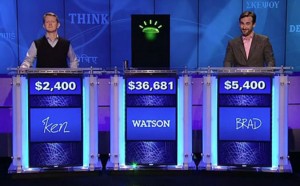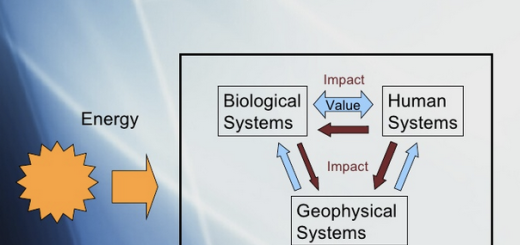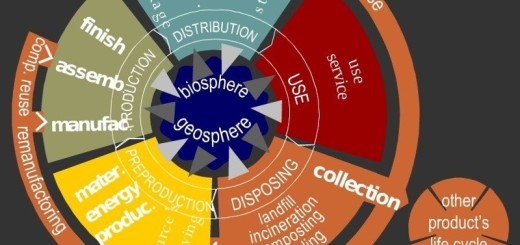Poverty Puzzles for $1600
How a Jeopardy-winning supercomputer suggests a new way to fight poverty.
 Approximately half the world’s population lives on less than $2.50 per day. A billion children live in absolute poverty.
Approximately half the world’s population lives on less than $2.50 per day. A billion children live in absolute poverty.
Traditional aid charities give food, clothing, and medicines. More development-oriented programs try to improve agriculture, education, healthcare and infrastructure. Microfinance programs let the entrepreneurial poor take the initiative to improve their own lives. Even so, the UN Millennium Development Goals for 2015 seem unlikely to be met. Even so, more than 20,000 children die each day due to poverty.
Meanwhile, this week in the United States, an IBM supercomputer named Watson easily defeated the two most successful past winners of the popular game show Jeopardy. Watson was able to figure out the convoluted phrasing of the Jeopardy questions and come up with a confident answer, or sometimes an educated guess, faster than the human contestants.
Let’s consider who or what Watson is. IBM states that:
 “Watson is made up of a cluster of ninety IBM Power 750 servers (plus additional I/O, network and cluster controller nodes in 10 racks) with a total of 2880 POWER7 processor cores and 16 Terabytes of RAM. “
“Watson is made up of a cluster of ninety IBM Power 750 servers (plus additional I/O, network and cluster controller nodes in 10 racks) with a total of 2880 POWER7 processor cores and 16 Terabytes of RAM. “
Wow! Sounds powerful, and it is. Each Power 750 server consumes, according to specs, 1950 Watts. Ninety of those adds up to 175.5 kilowatts. With all those accessory components, let’s round it up to 200 kW. By way of comparison, that’s about 10,000 times higher than a laptop computer.
With all that computing power, Watson successfully emulates and outperforms the human brain at finding answers to questions of fact presented in natural language. Quite an advance for computers, and a sign of things to come. I have no doubt that we will soon have computers that can converse with us and outperform us in surprising ways. I have no doubt that some time in the not too distant future there will be computer brains with consciousness, that will far transcend the capabilities of the human brain.
But in the meantime, a human brain is still one heck of a powerful supercomputer. A human brain can process and correlate disparate sensory information, generalize, speculate, initiate, validate and solve a wide variety of problems in ways that are way beyond Watson’s capabilities. And a brain is SO much more energy efficient. Watson’s hardware consumes about 200,000 Watts of energy flow. A human body consumes about 100 Watts. So the fair comparison based on energy use is not Watson against two humans, but against two thousand!
Watson’s hardware alone costs over $1,000,000; with software its price climbs to multiple millions. Amortized over seven years, that’s perhaps $1,000 per day, not including power, air conditioning, maintenance, and operator expenses. Add those in and Watson probably costs about $5000 per day.
Meanwhile, there are three billion brains out there trying to survive on $2.50 per day. Double their daily income to $5 per day and they could more properly feed and train their brains. At $5 per day per human, the cost to operate one Watson equals the cost to sustain one thousand humans! I’m not arguing that Watson is a waste of money. My point is that there is a lot of underutilized and inexpensive brainpower out there. What if we could tap into it? Can we figure out a way for the poor to earn income through brainwork rather than begging or back-breaking labor?
It’s not as far-fetched as it might seem. There are now over 5 Billion mobile phone subscriptions worldwide, with over 70% of them in the developing world. Mobile phone penetration in the developing world is now about 68 subscriptions per 100 people. There are also now more Internet users in the developing world than in the developed world. Most do not own their own computers, but rent time at Internet cafes or retail storefronts. Over the next five years, it is likely that most developing world subscribers will swap out their old phones for inexpensive smartphones that can provide Internet access. Over the same period, cellular networks will be upgraded to provide limited Internet access even in rural areas.
Cell phones provide many benefits to their owners, but we can also see them as a way to access the information processing capabilities of billions of under-utilized brains. Consider crowdsourcing, an already popular way to submit a problem or task to anyone “out there” willing to tackle it, for fun or payment. Consider innovative Internet-based “games” like Foldit and Eterna that tap into the problem solving capabilities of volunteers to assist with significant scientific challenges. Consider micro-payment schemes that allow users to bank and spend using their cellular phones. The new answer to poverty alleviation just might be clever ways to “outsource” brainwork to the bottom billion.
Social entrepreneurs, start thinking!
Sources: IBM, GlobalIssues.org, ITU



WATSON COULD NEVER EVEN CONCEIVE YOUR CHALLENGE, LET ALONE OUTTHINK THE BILLIONS OF NETWORKED HUMANS ADDRESSING COUNTLESS CHALLENGES SINGLY AND IN COMBINATION!
You are so right that better access to food and knowledge of the bottom billion will hugely enrich the power of all our collective networks.
Never say never…
What is education, Alex?
The SETI project came to mind. Bit Torrent also. I remember reading about using individual cell phone as booster transmitters, even when turned off. A crowd of cell phone holders creates its’ own antennae system.
Futuristic wavy lines…Eerie sounds……. We’re sitting in a Parlor where the brightest of us sit around a light source with wires coming out of our heads…..computing……………………….
And lo! It came to pass that the many became Borg, and the Borg ruled the many…. eerie sounds…The Matrix in reverse, our bodies are provided with energy in order to commandeer the computing power of our brains
Very good blog post! Everything you’ve said is similar to the ideas I’ve been thinking of lately. We should really tap into the collective intelligence from our current social network to provide solutions for problems and collaborate more efficiently. However, the biggest aspect against the argument for social intelligence is that computers are constantly (and exponentially) getting better, while human brains are not.
True enough. In ten years Watson will run on a laptop using less power than a brain. In twenty years Watson will run on a chip. In thirty years Watson will run on a nanochip embedded in a brain. Boundaries between human and machine will blur. Boundaries between individuals will blur. A new level of organization emerges!